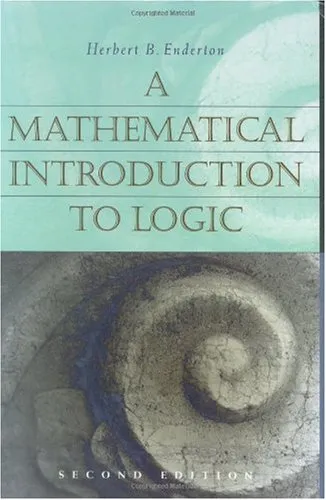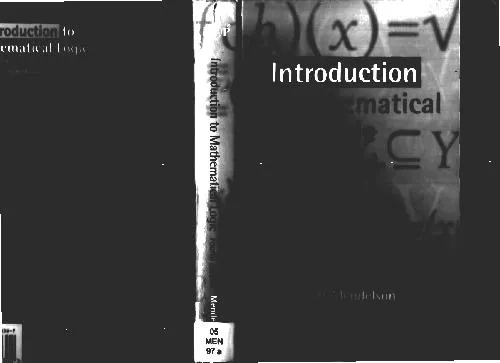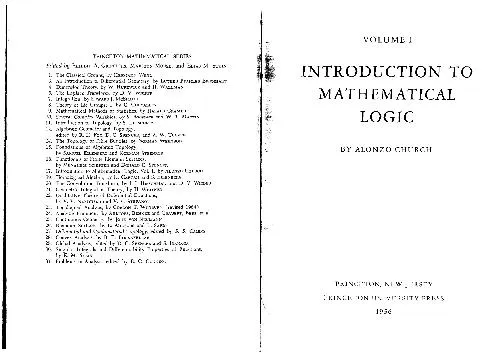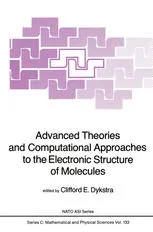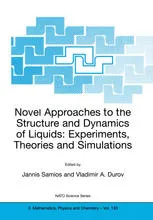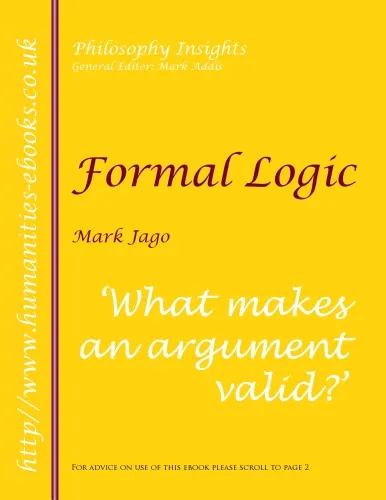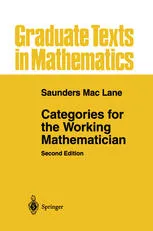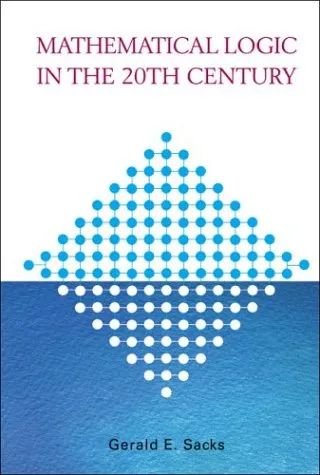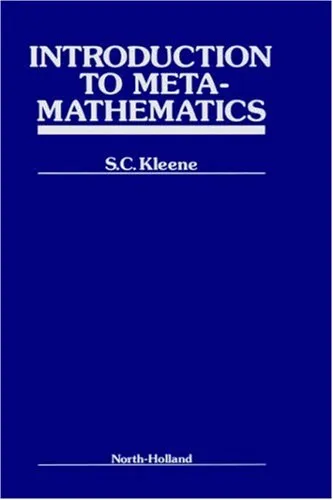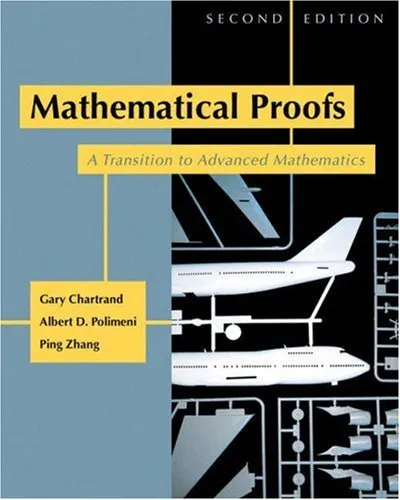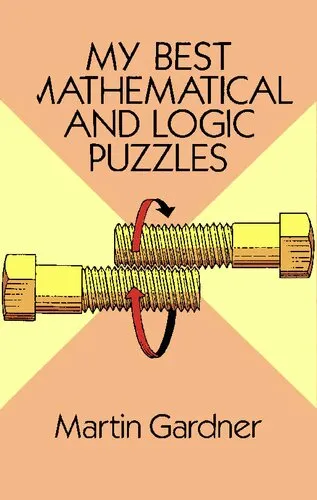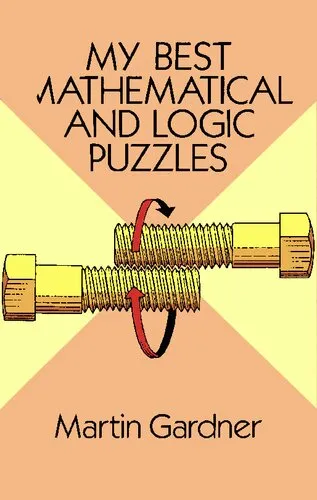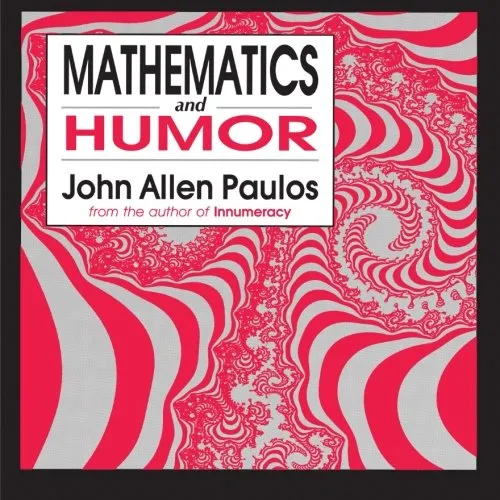A mathematical introduction to logic
4.6
بر اساس نظر کاربران

شما میتونید سوالاتتون در باره کتاب رو از هوش مصنوعیش بعد از ورود بپرسید
هر دانلود یا پرسش از هوش مصنوعی 2 امتیاز لازم دارد، برای بدست آوردن امتیاز رایگان، به صفحه ی راهنمای امتیازات سر بزنید و یک سری کار ارزشمند انجام بدینکتاب های مرتبط:
معرفی کلی کتاب
کتاب "A Mathematical Introduction to Logic" نوشتهی Herbert B. Enderton مرجعی جامع و کارآمد برای فهم عمیق مبانی منطق ریاضی است. این کتاب از زمان انتشارش به عنوان یکی از مراجع استاندارد برای دانشجویان و محققانی که به دنبال درک اصول بنیادی منطق هستند، مطرح شده است. به دلیل شفافیت و جامعیت در ارائه مباحث، این کتاب نه تنها برای مبتدیان بلکه برای اهل علم و صاحبنظران نیز مفید واقع میشود.
خلاصهای جامع از کتاب
این کتاب در دو بخش عمده سازماندهی شده است. بخش اول به مدلهای منطقی و ابزارهای زبانی که برای مطالعه ساختارهای ریاضی ضروری هستند، میپردازد. نویسنده با بیان مسائلی مانند syntax و semantics، نظریه مدلها و مقولات مرتبط، بنیانی قوی برای مطالعه مباحث پیچیده فراهم میآورد.
بخش دوم به نظریه اثبات و موضوعات پیچیدهتری از جمله Gödel's incompleteness theorems پرداخته است. Enderton با زبانی ساده و قابل فهم، مفاهیم کلیدی و پیچیده را تشریح کرده و با مثالهای متعدد، درک مفهوم را برای خواننده تسهیل مینماید. هر بخش با مشکلات و تمریناتی طراحی شده همراه است که به عمیقتر شدن فهم مطالب کمک میکند.
نکات کلیدی
- فهم پایهای و بنیادی از syntax و semantics در منطق ریاضی.
- توضیحات دقیق در مورد نظریههای مدل و محدودههای آن.
- کاوش در علم اثبات و کاربرد عملی آن در مسائل منطقی ریاضی.
- آشنایی با Gödel's incompleteness theorems و اهمیت آن در منطق و علوم رایانه.
نقلقولهای معروف از کتاب
"یکی از شگفتانگیزترین دستاوردهای فلسفه منطق این است که ما توانستهایم ابزارهایی برای کشف نحو و معنی در خود زبانهای ریاضی پیدا کنیم."
"اثباتها نه تنها برای حصول نتیجه بلکه برای فهمیدن میانبرهای منطقی و استدلالهای زیربنایی ضروریاند."
چرا این کتاب مهم است؟
این کتاب به عنوان یکی از بهترین مراجع برای درک منطق ریاضی، اهمیت ویژهای دارد. Enderton با ارائه یک رویکرد منطقی و ساختارمند، به خوانندگان امکان میدهد تا مباحث پیچیده را با سهولت بیشتری درک کنند. این کتاب نه تنها در زمینه نظریه منطق بلکه در حوزههای متنوعی از جمله علوم کامپیوتر، ریاضیات و فلسفه نیز کاربردهای فراوان دارد. درک اصولی که در این کتاب مطرح میشود، برای هر کسی که قصد دارد در زمینه علوم نظری به موفقیت دست یابد، ضروری است.
Introduction to 'A Mathematical Introduction to Logic'
'A Mathematical Introduction to Logic' is a pivotal work that delves deeply into the structure of mathematical logic. Authored by Herbert Enderton, this book is designed to present both the fundamental principles and the more intricate aspects of logic to students and enthusiasts of mathematics. Through rigorous exploration and a systematic approach, Enderton provides a comprehensive guide that balances theoretical concepts with practical applications. This book is ideal for those looking to expand their understanding of logical syntax, semantics, and the essential role logic plays in the realm of mathematics.
Detailed Summary of the Book
The book is structured to guide the reader from the basic elements of logic to more advanced topics. It begins with an exploration of propositional logic, setting the stage for an understanding of more complex structures. Enderton meticulously illustrates the use of tables, methods, and proofs to establish a foundational comprehension of logical statements and their interconnections.
Following this, the book delves into predicate logic, which is a more elaborate system of symbolic logic. The author explains different types of predicates, quantifiers, and the intricacies involved in building logical expressions. As one progresses through the text, it becomes clear how predicate logic extends the expressive power of mathematical language, allowing for a deeper grasp of logical arguments.
Furthermore, 'A Mathematical Introduction to Logic' covers topics such as set theory, model theory, and the completeness theorem, which are crucial for understanding more sophisticated logical frameworks. Notably, Enderton discusses Gödel's incompleteness theorems, drawing attention to the limits of formal systems and the philosophical implications these theorems entail.
Key Takeaways
- Logical frameworks are essential for the formulation and resolution of mathematical problems.
- Understanding both propositional and predicate logic is fundamental in analyzing logical expressions and constructing valid arguments.
- The exploration of advanced topics such as set theory and model theory enriches one's perspective on traditional and non-classical logics.
- Gödel's incompleteness theorems introduce significant philosophical discussions about the limitations of mathematical systems.
Famous Quotes from the Book
Logical consequence is at the heart of what logic is about. One set of sentences logically implies another set if any situation that makes all the sentences of the first set true also makes all the sentences of the second set true.
In mathematics, logic serves both as an object of study and a tool for other mathematical investigations.
Why This Book Matters
'A Mathematical Introduction to Logic' is an indispensable resource for anyone pursuing studies in mathematics or philosophy. By nurturing a robust comprehension of logic, readers can enhance their analytical thinking skills, facilitate problem-solving capabilities, and appreciate the structure underpinning mathematical theories. Enderton’s text is not just a mere introduction but a stepping stone to advanced logic courses and research, serving as a catalyst for ongoing intellectual curiosity in logic.
Additionally, the book's clear explanations and insightful examples make complex logical concepts accessible to newcomers while still challenging seasoned mathematicians. By addressing the limits of formal systems and discussing broader implications, the book encourages readers to reflect on the philosophical dimensions of logic.
دانلود رایگان مستقیم
شما میتونید سوالاتتون در باره کتاب رو از هوش مصنوعیش بعد از ورود بپرسید
دسترسی به کتابها از طریق پلتفرمهای قانونی و کتابخانههای عمومی نه تنها از حقوق نویسندگان و ناشران حمایت میکند، بلکه به پایداری فرهنگ کتابخوانی نیز کمک میرساند. پیش از دانلود، لحظهای به بررسی این گزینهها فکر کنید.
این کتاب رو در پلتفرم های دیگه ببینید
WorldCat به شما کمک میکنه تا کتاب ها رو در کتابخانه های سراسر دنیا پیدا کنید
امتیازها، نظرات تخصصی و صحبت ها درباره کتاب را در Goodreads ببینید
کتابهای کمیاب یا دست دوم را در AbeBooks پیدا کنید و بخرید
1459
بازدید4.6
امتیاز0
نظر98%
رضایتنظرات:
4.6
بر اساس 0 نظر کاربران
Questions & Answers
Ask questions about this book or help others by answering
No questions yet. Be the first to ask!
